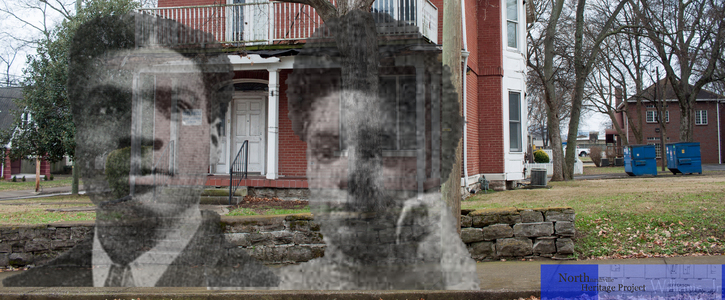1,000 signatures reached
To: Fisk University
Save the Henry Allen and Georgia Boyd House

Stop the scheduled demolition of the home of Henry Allen and Georgia Boyd and hold conversations with the community about the best uses for this important part of North Nashville's built environment.
Why is this important?
As concerned citizens of Nashville, historic preservationists, students of African American History, and individuals and families who have been directly impacted by the lives and careers of Henry Allen and Georgia Bradford Boyd, we ask that you stop the planned demolition of their home at 1601 Meharry Boulevard.
Since its construction in 1938, the home has stood as a symbol of one of the most powerful narratives in this city’s history, the ongoing struggle of African Americans to make the transition from enslaved persons to full-fledged citizens in Nashville. The two occupants of this home, Dr. Henry Allen and Georgia Bradford Boyd’s lives and careers impacted countless African Americans in this city, nation, and other groups around the world.
There was not a segment of Nashville’s African American community that was not touched by this couple. Dr. Boyd served as president of Citizen’s Bank in this city; served as of the National Baptist Publishing Board of the National Baptist Convention of America; was the publisher and president of Nashville’s African American newspaper, The Nashville Globe; and served as a director of Supreme Liberty Life Insurance Company. Dr. Boyd was also executive secretary of the Nashville Colored YMCA as well as secretary of the National Sunday School Congress of the National Baptist Convention of America.
Last, Dr. Boyd was a Fisk Trustee and part of the group of influential black men who convinced the Tennessee General Assembly to bring Tennessee State University to Nashville.
Georgia Boyd was a part of Nashville’s vibrant Colored Women’s Club Movement and for more than half a century, she dedicated her life to improving living conditions for African American women and by extension all African Americans in the Music City. Her membership in and work alongside organizations such as the Tennessee State Federation of Colored Women’s Clubs, Day Home Club, Phyllis Wheatley Club, and the National Association of Colored Women Clubs places her among the most active warriors in the struggle for gender and racial equality in this city.
Every brick, block, shingle, and beam that continues to hold up this house is a testament to their lives and stands as a monument to the triumphs, joys, and sorrows that define the African American experience in Nashville. This home is a sacred part of North Nashville’s built environment and should not be demolished.
Since its construction in 1938, the home has stood as a symbol of one of the most powerful narratives in this city’s history, the ongoing struggle of African Americans to make the transition from enslaved persons to full-fledged citizens in Nashville. The two occupants of this home, Dr. Henry Allen and Georgia Bradford Boyd’s lives and careers impacted countless African Americans in this city, nation, and other groups around the world.
There was not a segment of Nashville’s African American community that was not touched by this couple. Dr. Boyd served as president of Citizen’s Bank in this city; served as of the National Baptist Publishing Board of the National Baptist Convention of America; was the publisher and president of Nashville’s African American newspaper, The Nashville Globe; and served as a director of Supreme Liberty Life Insurance Company. Dr. Boyd was also executive secretary of the Nashville Colored YMCA as well as secretary of the National Sunday School Congress of the National Baptist Convention of America.
Last, Dr. Boyd was a Fisk Trustee and part of the group of influential black men who convinced the Tennessee General Assembly to bring Tennessee State University to Nashville.
Georgia Boyd was a part of Nashville’s vibrant Colored Women’s Club Movement and for more than half a century, she dedicated her life to improving living conditions for African American women and by extension all African Americans in the Music City. Her membership in and work alongside organizations such as the Tennessee State Federation of Colored Women’s Clubs, Day Home Club, Phyllis Wheatley Club, and the National Association of Colored Women Clubs places her among the most active warriors in the struggle for gender and racial equality in this city.
Every brick, block, shingle, and beam that continues to hold up this house is a testament to their lives and stands as a monument to the triumphs, joys, and sorrows that define the African American experience in Nashville. This home is a sacred part of North Nashville’s built environment and should not be demolished.
